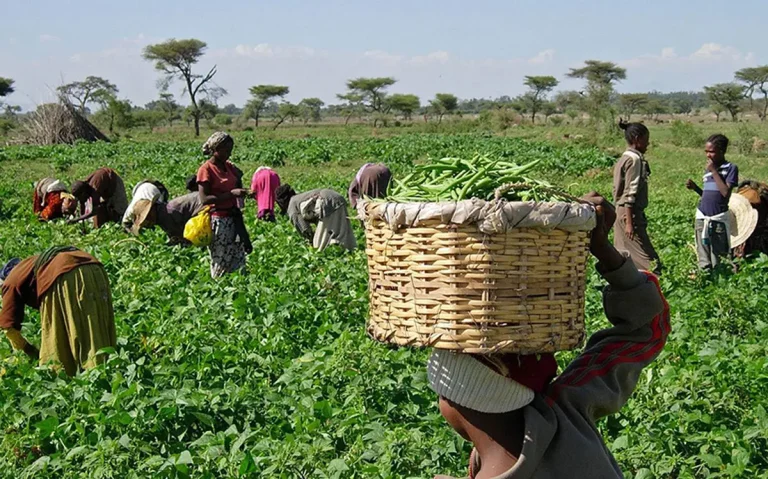Experts in the organic agriculture sector have called for regulations of agroecology practices to meet the increasing demand for organic agricultural produce and products.
The experts made the call at a stakeholder meeting with the theme, ‘opportunities and challenges of agroecology thinking, knowledge, and practice’, in Abuja.
ActionAid Nigeria’s Food and Agriculture Programme Manager, Azubike Nwokoye, said this was necessary to address the challenge of food security in the country.
He said that agroecology was capable of minimising future widespread disruptions of the nation’s food supply by pandemics and climate change.
This, he said, would be by enhancing linkages between small-scale food production and local consumption.
Nwokoye expressed concern that Nigeria loses about 362.5 million dollars yearly in foreign exchange to the ban on the exportation of beans.
“We need to get it right in terms of the opportunities.
”Agroecology helps us in terms of livelihood diversification, so farmers can have different crops, plant different crops in a small piece of land, while the land continues to sustain itself.
“It can also be combined with aquaculture, and this will help in terms of rapid increase in income because farmers are planting different things on the same land.
“It also supports food security, helping us to achieve food security and meet the Social Development Goal (SDGs),” he said.
Nwokoye, therefore, called for a National Agroecology Strategy to be domiciled in the Federal Ministry of Agriculture, and Food Security for coordination and scale-up of Agroecology programmes in the country.
He said that organic agriculture was one of the fastest developing sectors of agriculture globally, adding that, it was also one of the easily misconstrued aspects of agriculture.
”Hence the need for Nigeria to take advantage and earn more foreign exchange,” he said.
Nwokoye lamented that despite the many opportunities; the development of organic agriculture in Nigeria was still very low.
He said that though agroecology was a recent concept in agriculture, poor understanding had stalled its development in Nigeria compared to other African countries.
“As part of what should be done to solve the problem of highly hazardous pesticides, there should be a National Framework for Indigenous Plants, Seeds, Seedlings and Livestock for Agrobiodiversity Preservation and Promotion,” he said.
On the benefits of agroecology, Nwokoye said it improved health and nutrition, did little damage to the environment, was less costly, encouraged biodiversity, reduced nutrient losses and reduced erosion.
He added that it also encouraged better water management, low use of non–renewable resources, safer working conditions and less risk of contamination.
Nwokoye said that agroecology could build on traditional knowledge, recognise farmers’ knowledge and provide access to organic markets.
Earlier, the Coordinator of Organic and Agroecology Initiative (ORAIN), Prof. Olugbenga Adeoluwa, noted that ‘organic’ was fast developing, but lamented that understanding the opportunities within the system was low.
“Agroecology is coming up, and if we cannot go organic on all the crops, how do we reduce this hazardous chemical intake of foods that our body cannot digest,? he said.
Adeoluwa called for a change in orientation since the global market as of 2022 was close to 135 billion euros, adding that what share of this huge market does Africa command?
“Another important thing about organic system is the components, which include standards, labeling, and marketing, all these go together to protect the integrity of the products to minimise fake,” he said.
President of Organic and Agroecology Initiative (ORAIN), Peter Bakare, said the meeting was to look inward to see how to promote organic crops to address the challenge of food security in the country.
“We have to move forward, by strengthening enlightenment in all that we do, but unfortunately, Nigeria is a place where anything goes.
“We should be resolute and courageous enough to fight the battle and be on our guard while remaining productive, to have safe food to eat in the country.
“We need to form a formidable force to grow organic agriculture and agroecology in this country,” he said.
NAN


